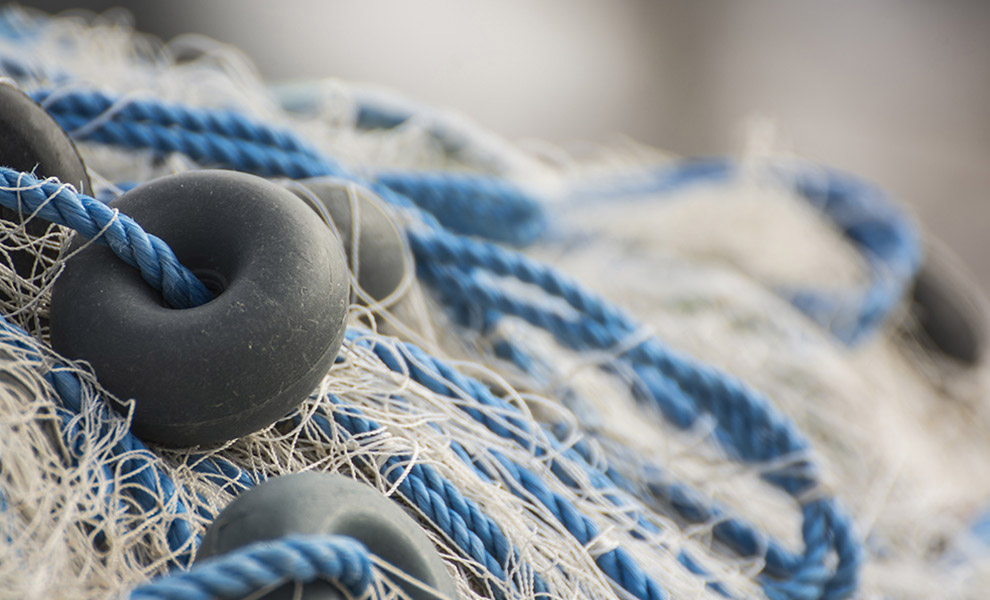Improving fisheries transparency would strengthen American strategic interests overseas, support businesses that do the right thing, and allow shoppers to make an informed choice at the checkout.
Improving fisheries transparency would strengthen American strategic interests overseas, support businesses that do the right thing, and allow shoppers to make an informed choice at the checkout. It would uphold human rights and protect ocean wildlife around the world, and even better, the policies we need are readily available now, largely with no costs involved. We can achieve all of this now.
Globally, fisheries are in crisis. Fish populations are in the worst state they have ever been, with over a third now overfished and 90% of the world’s large ocean fish having been wiped out since the 1950s. As vessel owners and captains hunt ever further for declining catches, something has to give to keep them profitable. All too often, the solutions unscrupulous operators land on is to fish illegally to increase revenue and to subject workers to modern slavery to cut costs. Protected sharks and marine mammals can be targeted, and conditions on board are often brutal and squalid, with appalling violence meted out on crew with impunity.
At my organization, the Environmental Justice Foundation, we have interviewed hundreds of former fishers.
We have collected evidence of industrial-scale shark finning and the slaughter of dolphins and walruses. Crew recount how they are shuttled between fishing vessels for years without ever seeing land or even dropping anchor, only to return home to find their wages have been stolen.
These abuses thrive in the distant-water fishing industry in particular, where the remoteness of fishing means regulators have little oversight and crew have little or no chance of raising the alarm or escaping. In turn, this means American businesses that do not exploit their workers can be undercut on price, and American consumers may unknowingly be buying seafood tainted with human rights abuses, the destruction of marine ecosystems, or wildlife crimes like shark finning.
While our investigations are global, one country looms particularly large in the testimonies we hear. China’s distant-water fishing fleet is the world’s largest, and the scale of the abuses on its vessels is singularly severe. The U.S. Coast Guard has accompanied and assisted efforts by other nations to counter Chinese fishing vessels encroaching in their coastal waters, and President Biden and Vice President Harris have recognized the importance of tackling illegal fishing to national security. While we welcome these actions, we know that more progress can and must be made now.
This begins with closing loopholes in the Seafood Import Monitoring Program (SIMP). SIMP could be an effective tool for ensuring the species it applies to are caught legally, sustainably and ethically, but its coverage is far too piecemeal to be effective. Fewer than 50% of seafood imports are currently screened under SIMP, and for China, this falls to around 20%.
As the biggest source of illegally-caught seafood entering the USA, China’s exports must be thoroughly scrutinized, and enhancing SIMP to cover every species the USA imports is the way to achieve this.
Next is strengthening the Moratorium Protection Act.
This legislation empowers the National Oceanic and Atmospheric Administration (NOAA) to identify, engage with and sanction countries responsible for illegal fishing, but defines this too narrowly for the legislation to be as effective as it could.
Switching to the internationally-used definition provided by the UN, including human rights laws and labor violations, would give NOAA and Customs and Border Protection (CBP) the power to effectively block imports from countries which fail to take action.
Building on this progress, the next step would be to develop new due diligence requirements for imports, to ensure that forced labor has not been used in their creation.
Lastly, the principles of the Global Charter for Fisheries Transparency should be enshrined into US legislation. The Charter is backed by over 50 global civil society organizations. It offers practical, cost-effective and immediate steps to improve fisheries governance, bringing illegal fishing and human rights abuses out of the shadows. As one of the world’s top seafood markets, the USA has both a responsibility and an opportunity to drive global progress by acting now.
Some of the policies in the Charter are simple and straightforward, no more complex than requiring cars to have license plates. However, the effect they would have for human rights and our planet, for US interests overseas and businesses and consumers at home, would be profound.


 Regional Headquarters
Regional Headquarters